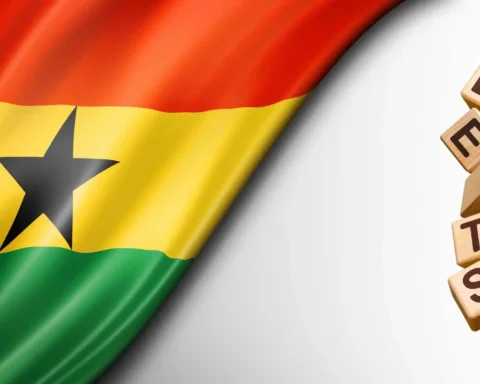Navigating the globalized workspace means embracing diverse cultural perspectives, and nowhere is this more evident than in the differences between work cultures in the United States and India. These two economic powerhouses exhibit distinct approaches to professional interactions, communication styles, and hierarchies. Recognizing and understanding these seven Cultural Differences Between US and India at Work can foster cooperation, enhance collaboration, and promote mutual understanding in the dynamic world of international business.
Table of Contents
Definition of Culture
Culture encompasses a rich tapestry of values, beliefs, behaviours, and traditions that shape how societies function, and individuals interact. In the context of our exploration into the cultural differences between the India and United States, understanding the nuanced definition of culture lays a foundation for comprehending how these intricate societal frameworks influence various aspects of work life.
Types of Workspace Cultures
Workplace cultures exhibit diverse facets, evident in both Indian and American contexts. Indian culture embodies a collectivist approach, nurturing interconnectedness and collaborative synergy. Teamwork and relationships hold sway over individual accomplishments. In stark contrast, American culture thrives on individualism, esteeming personal autonomy and achievements. These cultural distinctions extend to strong work ethics, with Indians valuing loyalty and enduring commitments, while Americans prioritize innovation and competitive drive. Such disparate work attitudes impact productivity, communication norms, and professional dynamics, underscoring the intricate interplay between the collectivist essence of Indian culture and the individualistic ethos of American work culture within their respective workplace milieus.
Differences between US and Indian Work Culture
The dissimilarities between US and Indian work cultures span various domains. Communication culture diverges, with the US favouring directness, while India opts for context-driven indirectness. Hierarchical structures vary, as the US promotes flatter setups, encouraging open dialogue, whereas India maintains more pronounced hierarchies. Work-life balance priorities contrast with the US valuing personal time, while India often witnesses extended working hours. Teamwork approaches differ, with the US emphasizing egalitarian collaboration, whereas India emphasizes harmonious collective endeavours. The diversity in the workforce is prominent in the US, reflecting a blend of backgrounds, while India contends with a comparatively more homogeneous professional landscape. These dissimilar elements underscore the intricate interplay of communication norms, hierarchical layouts, work-life equilibrium, teamwork philosophies, and workforce compositions between these cultures.
7 Major Differences between US and Indian Work Culture
Exploring the intricate fabric of work culture unveils a tapestry woven with distinct threads in the United States and India. As we delve into the major differences that shape these two economic powerhouses' professional realms, we unravel a narrative of contrasting communication styles, hierarchical structures, work-life paradigms, teamwork approaches, and workforce compositions. This exploration offers valuable insights into the nuanced dynamics that define the work cultures of these two diverse yet interconnected societies.
Tea/Smoke Breaks
Cultural differences surrounding tea and smoke breaks in the workplace highlight intriguing variations between the US and India. In Western countries, such as the US, employees often indulge in shorter breaks, lasting around 15-20 minutes, often sipping tea or stepping outside for a smoke while remaining at their desks. In contrast, India's work culture incorporates a longer, hour-long lunch break and additional 15-20 minute tea or smoke breaks. These pauses often lead to impromptu gatherings among colleagues within and outside the office premises. These distinctions not only refresh employees' spirits but also cultivate a positive and pleasantly competitive atmosphere. The unique blend of brief respites in the US and extended interludes in India exemplifies how workplace culture is shaped by diverse cultural norms, enhancing camaraderie and promoting a rejuvenated workforce.
Lunch Break Lengths
Divergent lunch break durations in US and Indian work cultures underscore distinct approaches to balancing productivity and well-being. In Western nations like the US, a succinct 30-minute lunch break is common, often coupled with a supplementary 15-minute tea or smoke break. This structure aligns with a fast-paced work environment, emphasizing efficiency. Conversely, India adopts a more leisurely rhythm, allowing for an extended one-hour lunch break alongside a 15-20 minutes tea/smoke break. This extended interval fosters moments of relaxation and camaraderie among colleagues, contributing to a more laid-back atmosphere. The varying lunch break lengths thus mirror the broader work culture ethos, with the US prioritizing swift task completion and India valuing a more unhurried, sociable workplace ambience, ultimately influencing the overall dynamics and energy within these professional settings.
Professional Life and Deeper Understanding
Professional life in the US and Indian work cultures exhibits intriguing disparities, reflecting unique societal norms and values. In the US, a results-oriented approach dominates, with punctuality and efficiency holding paramount importance. Work hours are typically fixed, spanning 9 to 5, and work ethics emphasize individual initiative, innovation, and a clear separation between personal life and professional spheres. In contrast, India's professional landscape embraces a more interconnected ethos, often entailing longer work hours and blending personal life and professional commitments. Hierarchies are pronounced, and loyalty to the organization is cherished. Here, relationships and teamwork often supersede individual accomplishments, contributing to a more collectivist work environment. These differences underscore the intricate interplay between cultural influences and work dynamics, shaping distinct paths to success within these diverse professional arenas.
Talent Recognition & Appreciation
Talent recognition and appreciation are vital, demonstrating intriguing differences in cultural values within US and Indian work cultures. In the US, individual achievements are highlighted, often with public acclaim or monetary rewards, driving motivation. In contrast, India prioritizes team successes, with recognition subtly integrated into daily interactions and celebrations, reflecting collectivist values. Hierarchies also influence this dynamic, emphasizing seniority. These nuances underscore the intrinsic link between work culture and cultural values, shaping distinct approaches to talent acknowledgement.
Team Building Activities & Cultural Backgrounds
Team building activities play an important role in forging connections across diverse cultural backgrounds within US and Indian work cultures. These activities serve as bridges, fostering mutual understanding, enhancing collaboration, and nurturing inclusivity among team members from varied cultural origins. By engaging in shared experiences and challenges, individuals gain insights into each other's perspectives, breaking down stereotypes and biases. Cultural differences are acknowledged and embraced, enriching problem-solving approaches and communication dynamics. When planning such activities, cultural sensitivity is paramount. Examples include cross-cultural cooking sessions, where colleagues share traditional recipes, or storytelling workshops that celebrate diverse narratives. These activities not only bolster teamwork but also cultivate a genuine appreciation for each other's cultural uniqueness, thereby fortifying bonds and collectively contributing to a more harmonious and productive work environment.
Mental Health & Level of Professionalism
Cultural differences exert a significant influence on mental health and professionalism within the workplace, with notable variations between US and Indian work cultures. These cultural dynamics shape the perception and handling of mental health issues, as well as the expectations of professionalism. In the US, there's a growing openness to addressing mental health concerns, with companies increasingly providing resources and support. Professionalism is associated with maintaining a work-life balance and seeking help when needed. In contrast, India's work culture often emphasizes resilience and enduring challenges, potentially leading to under-addressed mental health issues. Here, professionalism can entail demonstrating dedication even in the face of personal struggles. These differences underscore the contrasting attitudes towards mental health and professionalism, with US companies prioritizing well-being and Indian companies often valuing perseverance and dedication above personal struggles.
Fitness Vouchers, Mini Gatherings, & Proofreading Documents
In the Indian work culture, several practices foster a positive and inclusive environment. Fitness vouchers are often provided, encouraging employees' physical well-being and demonstrating care for their health. Mini gatherings, such as team lunches or celebratory events, cultivate camaraderie and strengthen interpersonal connections. Additionally, a meticulous approach to proofreading documents showcases attention to detail and a commitment to quality. These practices collectively contribute to a workplace that values holistic wellness, nurtures relationships, and maintains high standards, thus fostering a positive and inclusive work environment where employees feel supported, engaged, and appreciated.
Company Culture in the US vs India
Examining company culture through a cross-cultural lens reveals fascinating insights into the distinct yet interconnected ways that businesses operate in the United States and India. From communication styles and hierarchy to values and work ethics, the divergent and harmonious aspects of company culture in these two dynamic nations paint a comprehensive picture of how organizations navigate the global landscape while honouring their unique societal backgrounds.
Positive Environment in the US
A positive work environment thrives in the US, rooted in key elements that foster harmony and motivation. Individualism reigns, empowering employees with the freedom to innovate and think creatively, driving personal growth and organizational progress. Yet, this emphasis on individuality seamlessly intertwines with a strong sense of community, forming a robust team dynamic.
Collaboration is championed, enabling diverse minds to converge towards shared goals. Notably, the celebration of collective achievements adds a layer of camaraderie, reinforcing the idea that success is a result of unified efforts. In this framework of positive work culture, the synthesis of individual empowerment and collective collaboration creates an atmosphere that inspires, supports, and propels both personal and professional growth.
Psychological Assessments in India
Psychological assessments play a significant and distinct role in the Indian work culture, setting it apart from practices in the US. In India, these assessments are widely employed to evaluate personality traits, aptitude, and job suitability. They serve as tools to gauge a candidate's compatibility with a specific role, offering valuable insights into their potential contributions and fit within the organization.
Understanding the role of psychological assessments holds great importance for both professionals and companies in India. Professionals gain self-awareness and alignment with suitable roles, while organizations make informed hiring decisions that align with their workforce needs. This emphasis on psychological assessments underscores the cultural value placed on holistic evaluations and well-matched job placements, contributing to a more aligned and effective workplace dynamic.
Conclusions
The cultural differences observed between India and the USA in the workplace offer valuable insights that underscore the necessity of recognizing and valuing diversity for cultivating an inclusive work environment. Appreciating these distinctions enables the establishment of effective communication channels, fostering understanding across diverse perspectives. Respect for hierarchy, a core aspect in both cultures, calls for adaptability in decision-making processes, acknowledging the significance of varied inputs.
Embracing cultural diversity within teams yields multifaceted solutions and enriches creativity. By navigating these nuances with open-mindedness, organizations can harness the collective strengths of their workforce, fostering a harmonious and inclusive atmosphere that thrives on collaboration, innovation, and mutual respect.
FAQs
What are the cultural differences between India and USA?
Cultural differences between India and the USA encompass diverse social norms, religious practices, communication styles, and traditions, reflecting distinct historical, geographical, and societal influences.
What is the Indian culture for workplace?
Indian workplace culture often values hierarchy, respect for authority, and strong interpersonal relationships, while emphasizing teamwork and adaptability within a diverse and inclusive environment.
What is the main difference between India and America?
One of the main differences between India and America lies in their cultural, social, and economic contexts, shaping diverse norms, lifestyles, and systems of governance.
How Indian work culture is different from Western work culture?
Indian work culture often emphasizes hierarchy, respect for authority, and strong interpersonal relationships, while Western work culture tends to prioritize individualism, open communication, and a more relaxed attitude towards hierarchy, reflecting distinct approaches to collaboration and decision-making.










